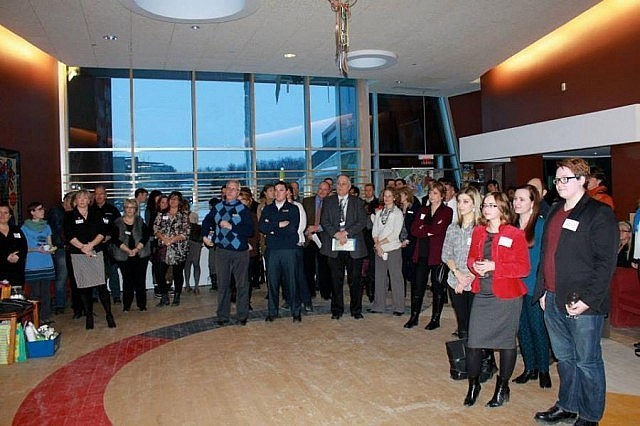
When you hear me refer to “social networking”, erase from your mind for just a moment all thoughts of Facebook, Twitter, Google+, and LinkedIn. I want to talk about the value of actual human contact: face-to-face social networking.
You may already be involved in networking or referral groups, which are great — but in all honesty, are these activities really driving new business your way? Here’s a thought: have you considered joining your local Chamber of Commerce?
If you’re a business owner, chances are you already know several other business owners, whether in your field or not. Have you ever spoken to them about the possibility of referring business? If these are people you know and trust, why wouldn’t you send business their way? And vice versa? Without a doubt, referrals are the best way to grow your business and build solid relationships with your clients, both past and present.
There’s no better way of developing these contacts than through organized networking events. Your local Chamber of Commerce is the ideal vehicle for such events and alliances.
You become more valuable to your clients and prospective clients when you can recommend resources and make referrals for products or services that you don’t offer. Take a moment to think about other types of services that your clients might need and might ask you about.
Let me offer some examples:
- If you’re an interior designer and you find that often there is a need for contracting or painting services as part of the design project, develop relationships with one or two of these types of business owners — so that when your client
asks, you are ready with a few recommendations. - If you’re a wedding photographer, align yourself with caterers, florists, wedding planners, tailors/alterationists, hair stylists, makeup artists, and so on.
- If you specialize in marketing or advertising, have a resource for specialty imprinted novelty items (for goodies printed with the logo of the business you are working with) and develop connections with print media (e.g., newspapers, magazines, journals) and web media, radio and television personalities (producers and interns are great allies as well), and local bloggers or critics.
I call these relationships “strategic alliances” — which is really just a fancy way of saying people to whom you might refer business or people who might refer business to you. What’s even better is that you’re probably already connected with many of these people,
Before you get too excited and rush out to pull together your alliances, here are a few tips to consider first:
- Trust is key. Be sure that the businesses you choose to recommend are ones you respect and would personally use. If you wouldn’t recommend a business to your best friend, why would you recommend it to a client?
- Make sure they are relevant to your line of work. You want your strategic alliances to be businesses that are fairly closely tied to the work that you do, so it makes sense to refer your clients to them and vice versa.
- Turn your professional relationships into personal relationships. In addition to the professional connection, foster your relationship with business owners in other ways as well. Perhaps invite them for a coffee or lunch. Keep in touch with them regularly to see how their business is doing, and perhaps update them on changes within your business or new services that you might offer. Behave as you would with a friend — offering help or advice when appropriate or solicited.
- Communicate! If you refer a client to another business, drop your contact at that business a quick note letting them know you are sending someone their way. Include a few details about the individual that might be helpful in quickly establishing the connection. Conversely, if someone refers a new client to you, at the very least send them a thank-you card — or be even more classy and send them a bottle of wine or a gift certificate to a local restaurant.
- Return the favour. This isn’t just about having business referred your way. Make sure that you are referring as often, if not more, than you are referred.
Finally, once you have established your strategic alliances, find ways to foster interaction within your network.
Your local Chamber of Commerce is an excellent place for forging strategic alliances and potential partnerships. People you meet and greet at Chamber events offer opportunities for growth in your business — as your business does for them.



























